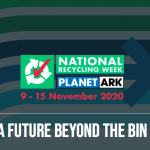Waste management essentials for SMBs

Minimising the amount of waste your company generates by either recycling or modifying your wasteful practices can be beneficial to both the environment and your bottom line.
For example, switching to a paperless environment can cut down the paper use drastically, while the remaining disposable products can be reused or recycled.
Waste management involves various methods of responsible disposal, so depending on the type of waste it can be dumped into a landfill, incinerated, buried, or sent for further processing and breakup.
Create less waste
While much is being said and written about recycling, we hear relatively little about ways to reduce waste in business environment in general. Although important, recycling isn’t as efficient as producing less waste from the beginning. For example, instead of buying new ink cartridges, discarding or recycling the old ones, consider refilling your existing cartridges once the ink is spent. Even though most cartridge types can be refilled 7 to 8 times, you won’t hear much about it, since it’s in the producers’ best interest that you buy new cartridges every time.
Dispose of rubbish properly
While municipal waste bins are handy for disposing waste every day, sometimes there’s just too much waste to fit in that format. From time to time, businesses embark on makeovers, remodelling, moving, major landscaping projects, etc. all of which generate increased amounts of waste that needs attention. That’s why eco-conscious business hubs like Sydney have a well-developed industry of environmentally-responsible rubbish removal. For example, this firm for renting skip bins in Hawkesbury offers a range of skip bins sizes and has the means of disposing green or solid waste in an environmentally-safe way.
Reduce paper waste
Even small businesses can generate notorious amounts of paper, which is an excellent category for reuse. According to the EPA, between the 1970s and 1990s, the consumption of paper in the US doubled, making eliminating paper from landfills a just cause. What is more, paper that decomposes in landfills gasses off methane, which is a greenhouse gas 20 times more harmful than carbon dioxide. To reduce paper use in your office, set your printer to print on both sides of paper whenever making copies for internal use. Also, instead of buying post-it notes, use scrap paper for writing, like opened envelopes.
Desperation or necessity
Even though the idea of reusing paper scraps might seem desperate to some, when we talk about reusing paper waste, we’re scraping against the hard truth, which is that we’ve been spoiled into using much more stationery than we actually need. Surely, fishing in the office bin for scraps of paper on which to write the meeting points is nobody’s idea of a business going green, but it can at least raise awareness and make employees more conscious about how much unnecessary waste the business generates day after day.
Buy environmentally-friendly products
While reusing and downsizing are effective green strategies, it’s illusionary to think that small businesses are going to make a nationwide impact by just reusing or repurposing a few products now and then. On the other hand, there is a considerable impact to be made by supporting a movement to purchase products and materials that need less energy to produce, pack, and ship, as well as those that use more recyclable materials. So in order to drop transportation and packaging costs, buy goods in concentrated, dry, or bulk form, or at least choose flexible packing instead of solid containers.
Even though we might not be aware of the scope of waste our businesses generate, and what happens to it, we know however, that costs associated with waste disposal are getting higher, and not only the environmental ones. Although recycling is an effective measure, it deals with the problem only after it has occurred. Even better approach is to reduce the amount of waste generated, and combine it with recycling and responsible disposal options.
As a senior business strategist, Lillian Connors believes that business must be more than the maximization of profit through different money-grabbing ploys. Ethical principles should be at the core of every commercial venture, paving the way for more balanced distribution of wealth on a global scale.




